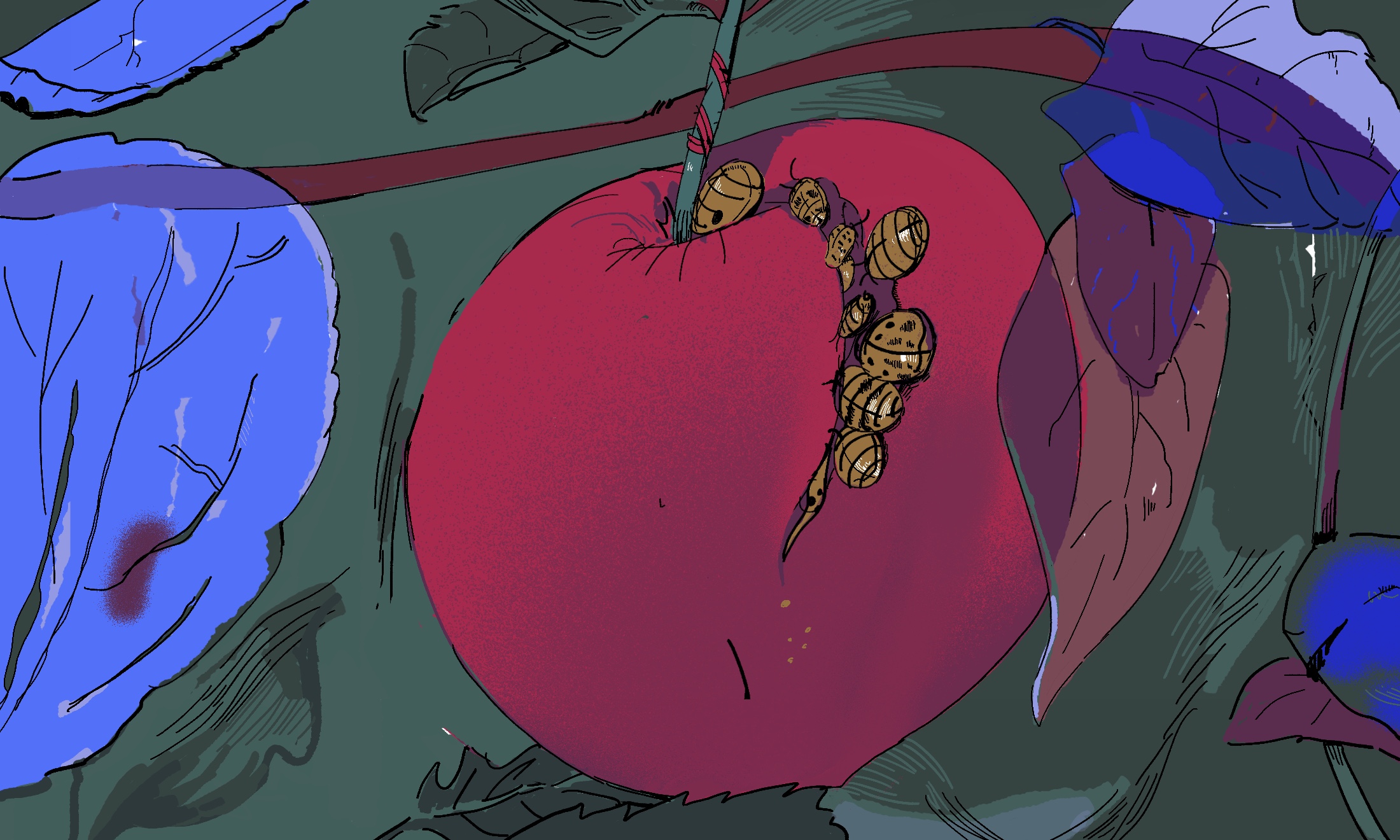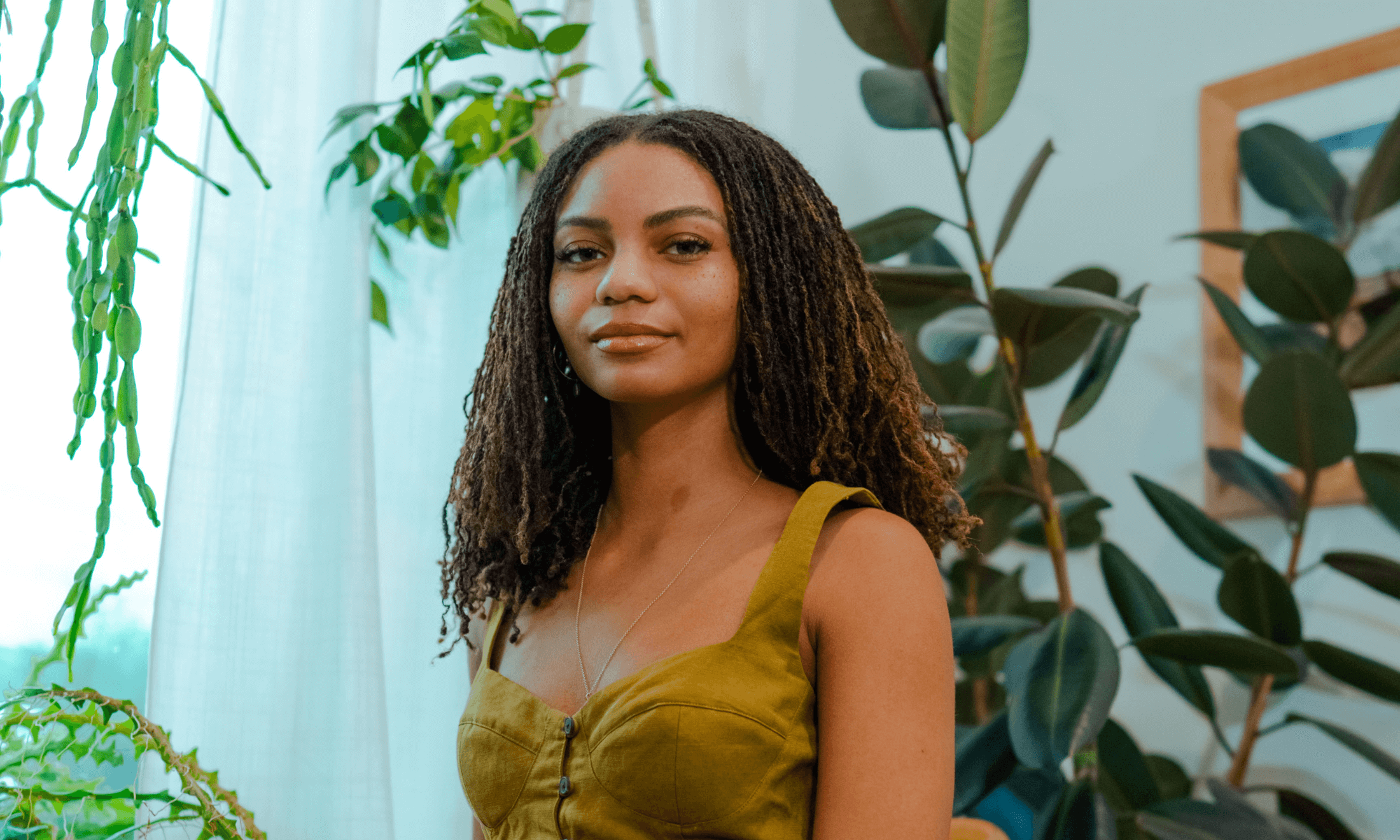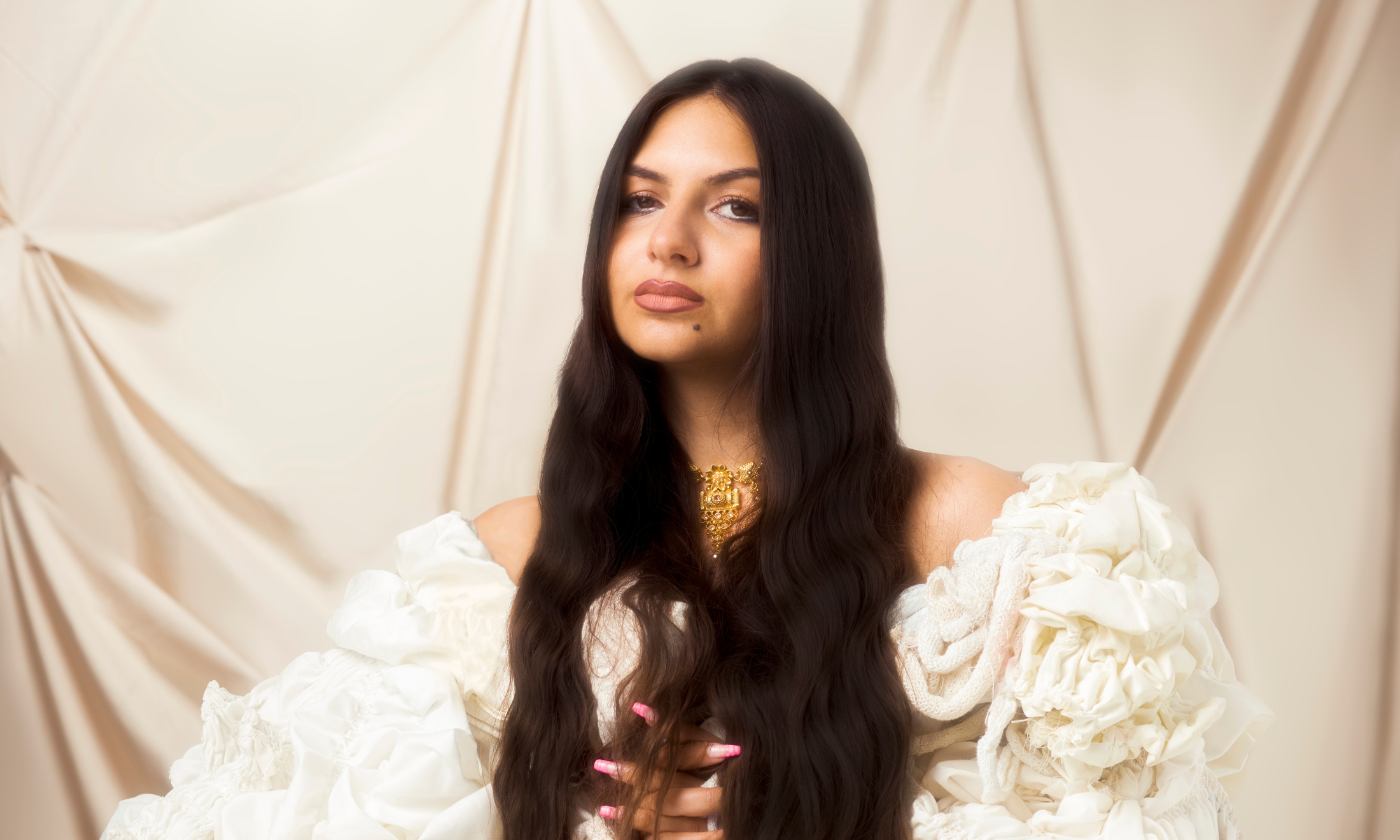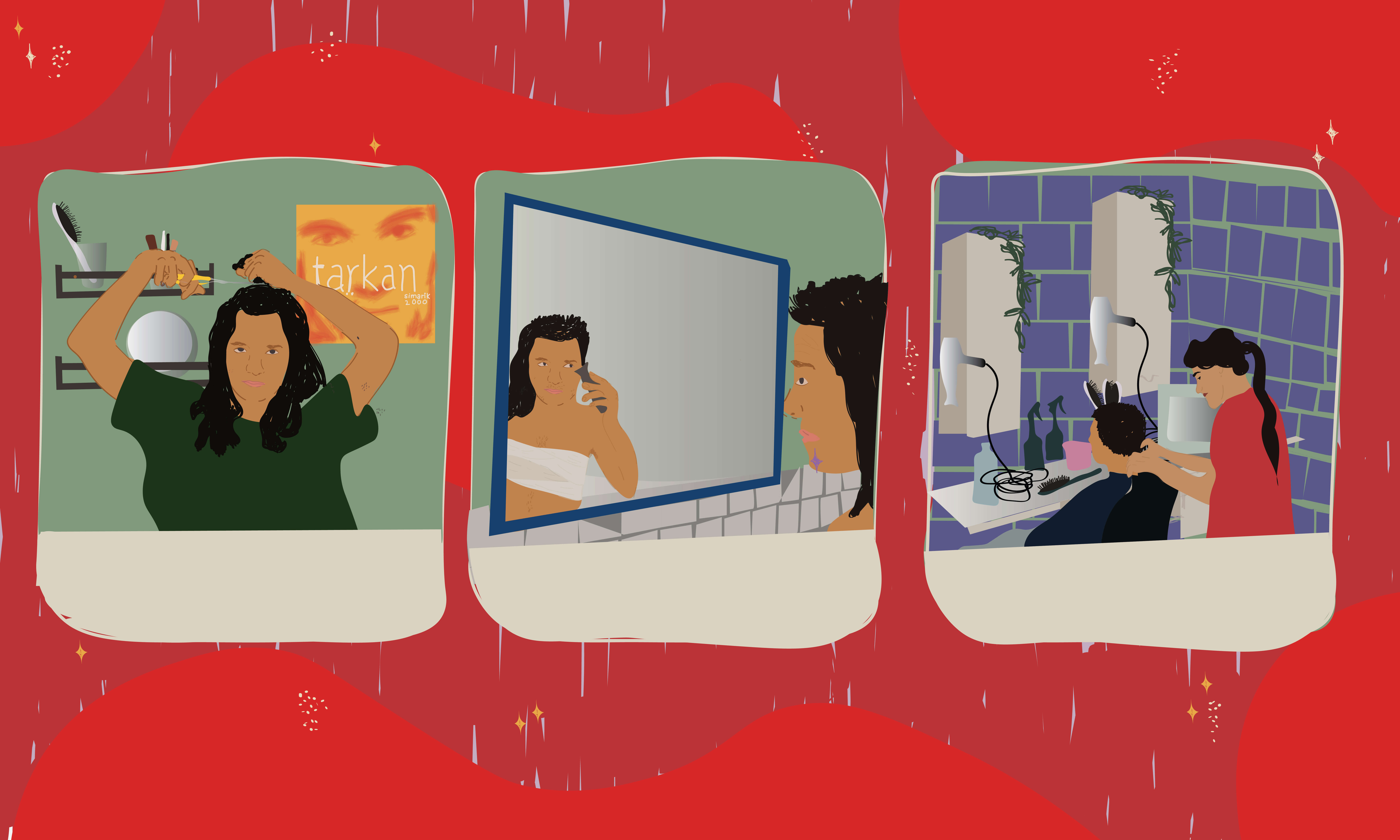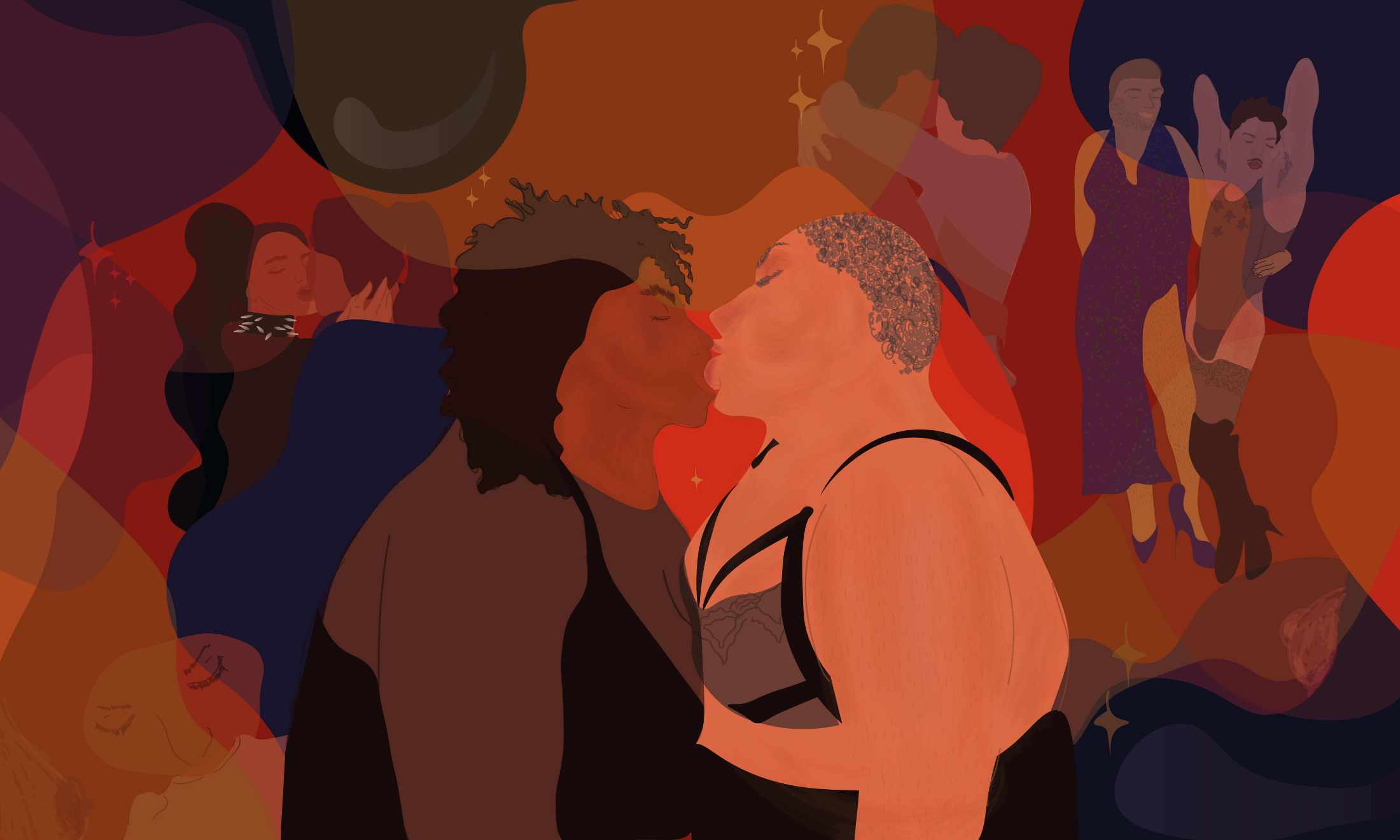
How Middle Eastern women and non-binary people are redefining their sexuality
Salma Haidrani
11 Nov 2019
Illustration by Michelle Wong
“A woman’s honour is like a match. It can only be lit once”. This Arab idiom has long celebrated women’s so-called modesty. As with many conservative regions, across the Middle East and its diaspora, a woman’s virtue is at odds with sexual exploration. Take how an Egyptian MP called for women to “pass” virginity tests if they want to stay at uni. Or, how Tunisian women undergo hymen reconstruction surgery to restore their so-called purity. This isn’t just confined to the region – young Parisian Arab women were found queuing outside a medical clinic for an identical operation.
It’s this that journalist Alya Mooro deftly grapples with in the new book The Greater Freedom: Life as a Middle Eastern Woman Outside The Stereotypes, part-memoir spanning sex, identity and conflicting cultures.
“After coming out of a long-term relationship in my mid-20s, it was my discomfort around sex and my inability to do with my body what I wanted to that initially alerted me to the invisible jury and to the fact that I was torn between two cultures and two moral compasses,” she says of what motivated her to write TGF. “I wanted to explore that and explore in what other ways this pull of cultures was impacting my life and those of other Arab women like me.”
Middle Eastern sex and sexuality has long been associated with Islam. But this is a cultural as opposed to a religious issue. Alya was cautious of conflating the two to a Western readership. “I really tried to emphasise that much of these double standards are apparent in various forms all around the world,” she stresses. “While Middle Eastern women are, for example, culturally expected to be virgins until they get married, in the West, double standards around sex and slut-shaming is still rife. The ideologies may manifest themselves but the origins – a patriarchal world – are still the same.”
It’s a conundrum I recognise, having spent nearly every summer in Beirut (I’m half-Lebanese). The country is often perceived as significantly more progressive and cosmopolitan than its more conservative Middle Eastern counterparts. Women aren’t expected to follow conservative dress codes which has seen it dubbed “the most liberal Arab state”. In contrast the cultural pressure to remain virgins until marriage can be as insidious.
Intrigued about whether Middle Eastern women and non-binary people shared the conflicts Alya and I grappled with in our teens and 20s, I spoke to six people ahead about how they’re re-defining attitudes towards sex and sexuality on their own terms.
ISHTAR*, 26, LONDON
“I went to an all-girls school so discussing sex and boys was normal, as was hanging out with them after school, at weekends and at parties. All my friends were chasing boys and sex was part of that. But at home having male friends wasn’t even allowed. I think my mum was afraid of sex and those fears were also instilled in me.
Although I loved attention from boys and had plenty of crushes and endless fantasies, my attitude to sex was centered on shame. Now at 26, I’m still equally afraid of my mum finding out I love sex. I feel confident in allowing myself to explore, I own my desires and I will never be shamed for them. Being sex-positive isn’t a submissive act.
Ishtar is a multi-disciplinary artist and culture editor of a magazine that represents women of the Middle East, North Africa and South Asia
ALIA, 34, WASHINGTON D.C.
“I’m the daughter of a mid-Western mother and a Saudi Arabian father. I grew up in the US and was raised by my mum. Sex was never something that was talked about at home. In school, it was abstinence-only education with an emphasis on girls’ purity – we were even given a purity pledge form to sign.
It wasn’t until I was 19 and at university that I admitted to myself that I’m a lesbian. With the help of the TV show The L Word, I came to feel OK about my queerness and that lesbians are capable of leading happy and productive lives.
Last year, I co-created the podcast The Queer Arabs as it’d gotten to the point of needing to specifically address that intersection of identities. It’s led me to connect with queer folks of similar heritages. This affirmation that I’m far from alone has strengthened my relationship to sex and sexuality in ways that I never in my wildest dreams imagined to be possible.”
Alia is the co-founder of The Queer Arabs podcast
“I’ve become more stubbornly committed to talking about sex now because I’m angry”
Salma El-Wardany
DARYA*, 22, LONDON
“Growing up in Oxfordshire, a conservative part of England, the way I was taught to view sex has had a psychological impact on me that I’m still trying to undo. I have vaginismus, which is when vaginal penetration is prevented by involuntary muscle spasms that cause severe pain. Trying to use tampons used to be impossible for me. I didn’t realise it was abnormal until I tried to have sex. I couldn’t be penetrated because it just hurt too much. I’ve read that vaginismus is common in people who have grown up with strict moral standards relating to sex. No one in my family speaks about sex openly but when they do, it’s with revulsion and hushed tones. I’ve even been shouted at for using the word ‘vagina’ in a conversation about sexual health. This is the attitude to sex that I grew up with and trying to unlearn it has – quite literally – been painful.
I’m really proud of our generation’s commitment to unlearning all the toxic and damaging attitudes we’ve inherited. It’s a comfort to know that for many, there are generational traumas that will stop with us.”
Darya is non-binary and of Persian heritage and was born and raised in the countryside
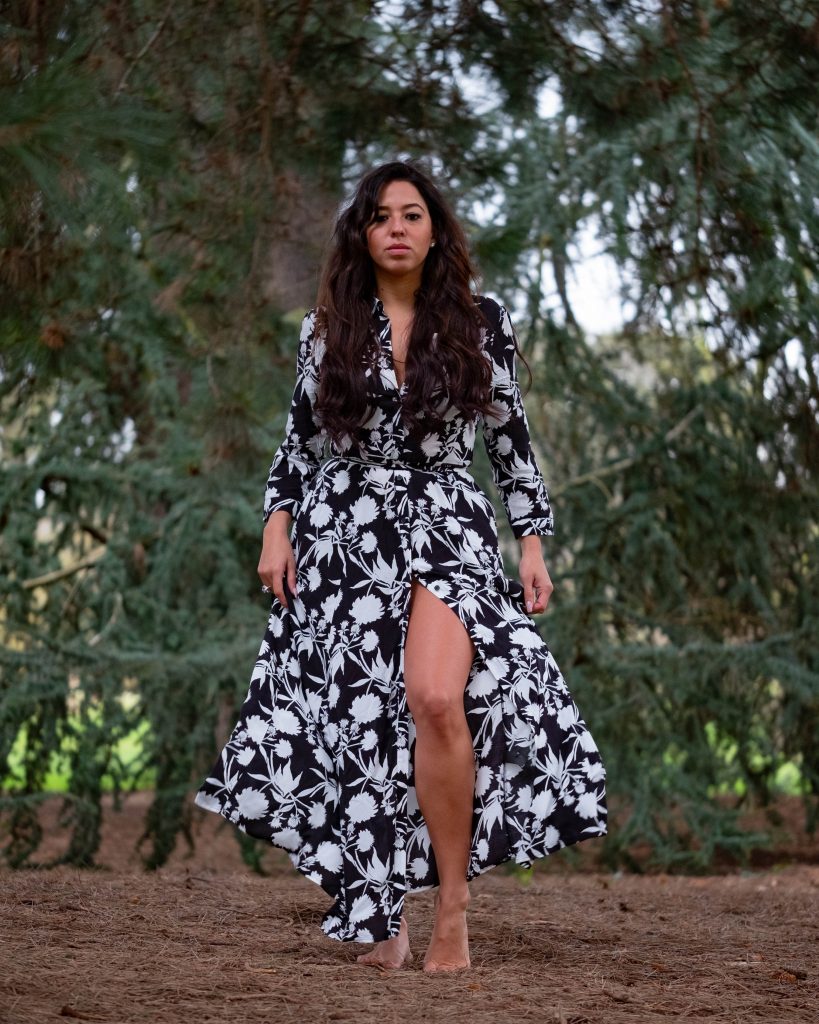
SALMA, 31, LONDON
“Once, I was in love with a non-Muslim lad from Yorkshire. I wanted to have sex, as you naturally do when you’re in love with someone. There was no one to talk to about it. There was no help or support. I was a virgin at this point and had sworn that I’d only have sex on my wedding night. I lost my virginity to him in secret and we spent three beautiful years together. The relationship eventually ended. I later ended up in a relationship with an Egyptian man. It was incredibly abusive and he used to call me a ‘whore’ for being with a man before him but it never stopped him from having sex with me every night.
I only wish we could at least allow people the space to discuss and talk about sex without damning them to hell. The first time I ever spoke to my mum about sex and told her that I wasn’t a virgin anymore, I was 28 and I’d been having sex for years. If I’d had the space for the conversation about sex or the support that I was with someone outside my faith and heritage, I wouldn’t have left what was the greatest love of my life. I also wouldn’t have found myself in a dangerous relationship with an abusive man, the effects of which I’m still trying to grapple with today. I’ve become more stubbornly committed to talking about sex now because I’m angry. I have the conversations I wish I had had access to when I was younger and hope that they might help someone else.”
Salma El-Wardany is a half-Egyptian, half-Irish sex-positive influencer, writer, poet and broadcaster. Born in Cairo and raised in Newcastle, El-Wardany also contributed to the Amazon best-selling anthology ‘It’s Not About the Burqa’.
ELLIE, 38, HOUSTON
“I grew up in Houston and New York, surrounded by Lebanese family on both sides. When I came out as bi and trans, neither went down well. I knew that I was the ‘shame’ of my family and that weighed heavily on me. I don’t know any other women like myself, in terms of being bi, trans and Arab.
I see so many women that prioritise what society expects a women’s needs to be i.e. family life and homemaking. Rather than their sexual and emotional needs or any concern if their relationship is healthy for them. I’ve seen certain women in my family go their entire lives without examples of what that would look like.
To any women of Middle Eastern heritage who might be struggling with their sexuality, relationship to sex or gender identities, know that you’re not defined by your family, your culture, traditions, nation, faith or other than anything than what you want to be. Nor do you need to abandon them either when exploring what gender, sex, and sexuality works for you.”
Ellie identifies as bi and trans and is a co-founder of The Queer Arabs podcast
SARA*, 28, LONDON
“Growing up in Kuwait, my parents pre-watched films to make sure there weren’t any sex scenes and if a sex or kissing scene came on the TV, it would be switched off straight away. They had a firm grip on the remote control to change the channel at any given moment. When I moved to the UK, it exposed me to sex much more intensely than I’d ever experienced before. Suddenly it wasn’t cool to be a virgin and the more people you’d slept with the better, which was the polar opposite coming from a culture that strongly condemns sex before marriage. It was an incredibly difficult experience to navigate. My cousins who had lived in Kuwait their whole lives were coming to me for advice on sex and one of them didn’t know what sex was until she was 16. Another didn’t know what STIs were until she was in her mid-20s. I feel I’m not able to speak out on my own experiences due to fears of being disowned by family. We still have a long way to go.”
Sara is half-Lebanese and was born and raised in Kuwait until the late 1990s
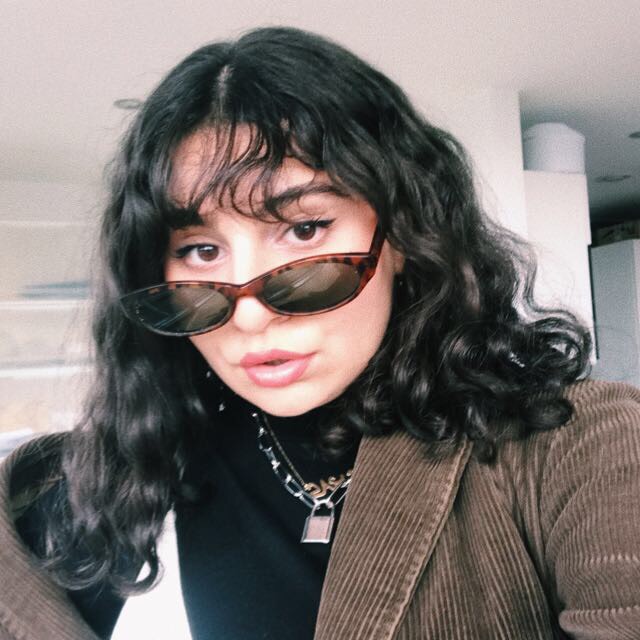
KAREN, 20, LONDON
Sex was definitely a word that I didn’t feel comfortable saying to anyone I knew back in Dubai, my hometown. I knew people would get arrested if word went out that they’d had sexual intercourse outside of marriage so of course, I was scared.
I do find it troubling that though sex was unspoken of, virginity was. My mum once made it clear that I should never give ‘in’ and lose it when she realised I was dating someone at 16.
I moved to London three years ago, now more comfortable talking about sex with almost everyone. My relationship with sex has changed for the better: I’m now in full control of my body. A year after I moved, my mum moved too. Now that we both live here, we speak so much more freely about sex and sexuality and I suspect it’s because we see that we’re not being judged, monitored or shamed.
Karen is a freelance photographer of Lebanese heritage, born and raised in Dubai, United Arab Emirates. She identifies as a queer Middle Eastern woman
All interviews have been edited and condensed. The Greater Freedom is out now

